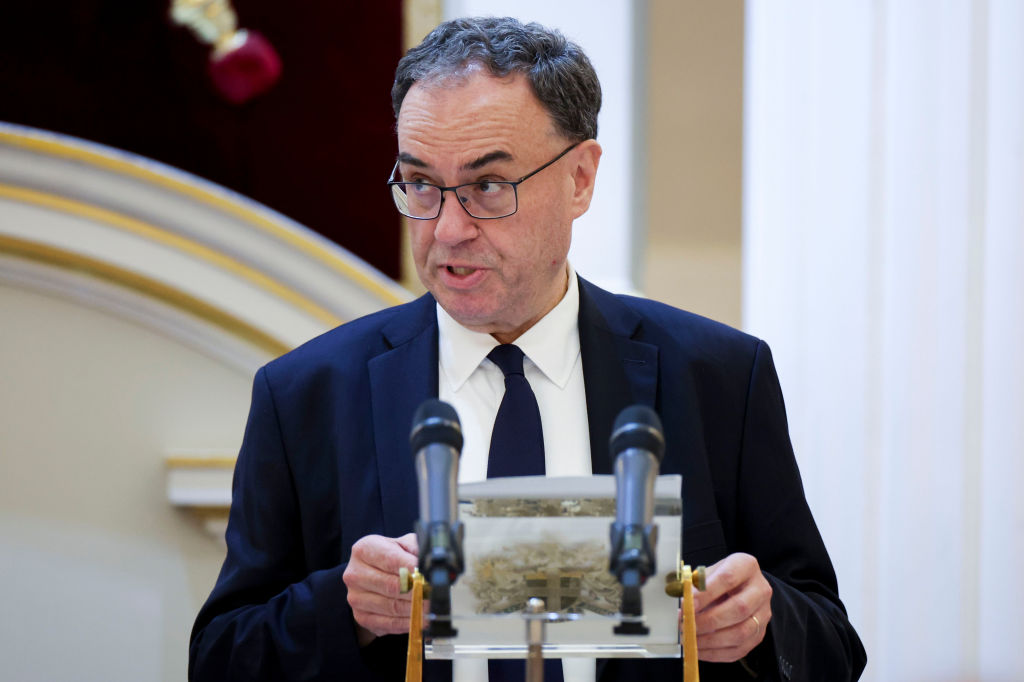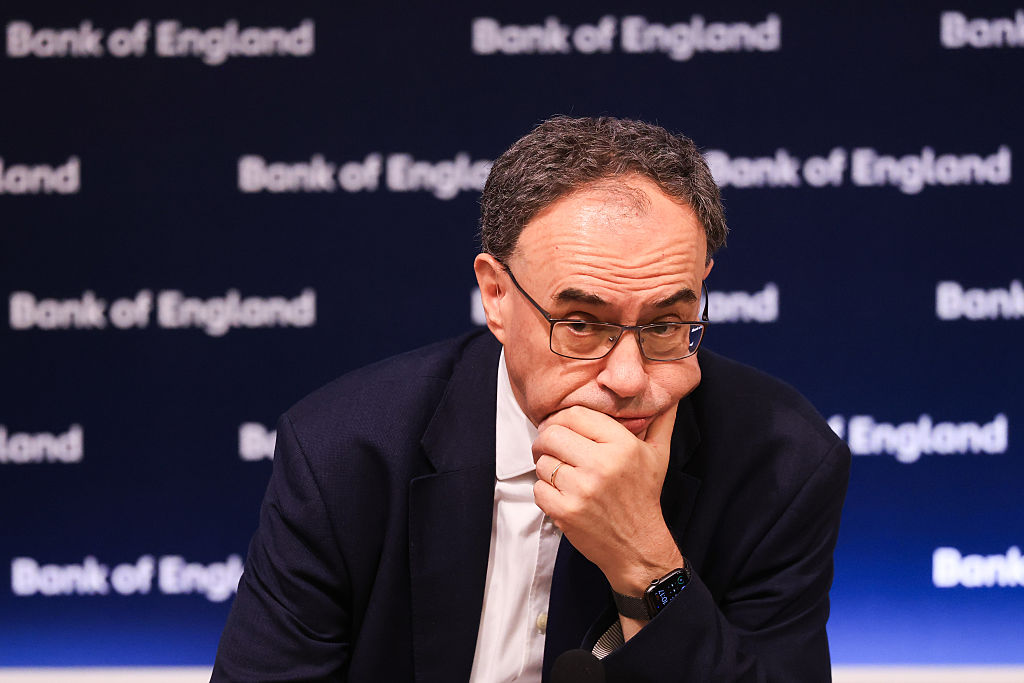ONS: UK economy recovered from pandemic faster than previously thought
Revisions from the ONS showed the UK economy has grown since the pandemic, while the latest data showed GDP grew in the second quarter of 2023.

Pedro Gonçalves

Get the latest financial news, insights and expert analysis from our award-winning MoneyWeek team, to help you understand what really matters when it comes to your finances.
You are now subscribed
Your newsletter sign-up was successful
Want to add more newsletters?

Twice daily
MoneyWeek
Get the latest financial news, insights and expert analysis from our award-winning MoneyWeek team, to help you understand what really matters when it comes to your finances.

Four times a week
Look After My Bills
Sign up to our free money-saving newsletter, filled with the latest news and expert advice to help you find the best tips and deals for managing your bills. Start saving today!
The UK economy recovered from the pandemic faster than previously thought, revisions from the Office for National Statistics (ONS) showed.
Gross domestic product (GDP) was estimated to be 1.8% above pre-pandemic levels in the second quarter of 2023 – previously the ONS thought GDP was 0.2% smaller than it was pre-pandemic.
The figures show the UK rebounded faster than France and Germany. The revisions were larger than normal due to the “practical challenges of estimating GDP” throughout the pandemic, the ONS said.
MoneyWeek
Subscribe to MoneyWeek today and get your first six magazine issues absolutely FREE

Sign up to Money Morning
Don't miss the latest investment and personal finances news, market analysis, plus money-saving tips with our free twice-daily newsletter
Don't miss the latest investment and personal finances news, market analysis, plus money-saving tips with our free twice-daily newsletter
“It has been a shock turn of events that the narrative around the UK’s sluggish post covid recovery has been completely flipped on its head because of statistical revisions,” said Victoria Scholar, head of investment at interactive investor.
“Despite this, the pound is on track for its worst month in a year since the mini-Budget turmoil in 2022,” she adds. “The depreciation has been driven by demand for the dollar amid expectations of higher for longer interest rates as well as risk-off investor appetite. There are also growing concerns about a risk of a UK economic slowdown or even a recession in the months ahead, weighing on sterling, as elevated inflation and higher interest rates take their toll.”
UK GDP grew in the second quarter
UK GDP is estimated to have grown by 0.2% in the three months from April to June. The ONS also revised GDP growth for the first quarter, showing the economy grew by 0.3% instead of 0.1%.
Growth was largely driven by an increase in the production sector thanks to falling input prices, which “relieved pressure on manufacturers”, says Scholar.
“While momentum is overall positive, these levels of growth aren’t exactly shooting the lights out,” says Sophie Lund-Yates, lead equity analyst at Hargreaves Lansdown. “Higher interest rates are playing their part in turning the nation’s economic thermostat down and this will play a key role in upcoming interest rate decisions.”
Where is the UK economy headed?
"We know that the British economy recovered faster from the pandemic than previously thought, and today's data once again proves the doubters wrong,” says Jeremy Hunt.
“The best way to continue this growth is to stick to our plan to halve inflation this year, with the IMF forecasting that we will grow more than Germany, France, and Italy in the long term," the Chancellor adds.
“Economist Jake Finney at PwC, however, is less optimistic about the future. "Unfortunately, this snapshot of economic data is not significant enough to change the overall picture of a flatlining economy," he says.
Ruth Gregory, deputy chief UK Economist at Capital Economics, shares a similar lack of optimism. "Overall, today's release changes very little. The data leaves the economy still only 0.6% above its level a year ago," she says.
"It does not change the big picture that the economy has lagged behind all other G7 countries aside from Germany and France since the pandemic. And that's before the full impact of higher interest rates has been felt," she adds.
Get the latest financial news, insights and expert analysis from our award-winning MoneyWeek team, to help you understand what really matters when it comes to your finances.
Nic studied for a BA in journalism at Cardiff University, and has an MA in magazine journalism from City University. She has previously worked for MoneyWeek.
- Pedro GonçalvesContributor
-
 Should you buy an active ETF?
Should you buy an active ETF?ETFs are often mischaracterised as passive products, but they can be a convenient way to add active management to your portfolio
-
 Power up your pension before 5 April – easy ways to save before the tax year end
Power up your pension before 5 April – easy ways to save before the tax year endWith the end of the tax year looming, pension savers currently have a window to review and maximise what’s going into their retirement funds – we look at how
-
 Why investors can no longer trust traditional statistical indicators
Why investors can no longer trust traditional statistical indicatorsOpinion The statistical indicators and data investors have relied on for decades are no longer fit for purpose. It's time to move on, says Helen Thomas
-
 Unemployment remains at five-year high as wage growth continues to slow
Unemployment remains at five-year high as wage growth continues to slowUnemployment in the UK held at 5.1% in the three months to November as wage growth fell again month-on-month.
-
 Is the Office for National Statistics fit for purpose?
Is the Office for National Statistics fit for purpose?Britain’s statistics authority, the Office for National Statistics, is increasingly unfit for purpose. Why, and what can be done?
-
 UK inflation forecast: where are prices heading next?
UK inflation forecast: where are prices heading next?UK inflation fell sharply in January. Is price growth expected to fall further in 2026, and when will inflation go back to the 2% target?
-
 Uncertainty ahead of the Budget causes house price growth to stall, says Rightmove
Uncertainty ahead of the Budget causes house price growth to stall, says RightmoveProperty website Rightmove says asking prices increased by just 0.3% in October, well below the 1.3% average for the month
-
 ONS: UK economy grew by ‘lacklustre’ 0.1% in final quarter of 2025
ONS: UK economy grew by ‘lacklustre’ 0.1% in final quarter of 2025The construction sector performed its worst in more than four years in the final quarter of 2025, the latest Office for National Statistics (ONS) GDP figures show
-
 UK inflation: What are the Consumer Price Index release dates?
UK inflation: What are the Consumer Price Index release dates?The UK’s inflation reports are published monthly. When do they come out and where are prices heading?
-
 When is the next Bank of England base rate meeting?
When is the next Bank of England base rate meeting?The Bank of England held interest rates at 3.75% in February 2026. When is the next Monetary Policy Committee meeting and will interest rates fall further this year?
